work-life balance
A Twitter user compiled these hints to make your kids loathe gaming — and includes a handy bonus moral for all ages.
Many were depressed by some of the comments made by overseas YouTube users who found the workday in the video long and tiresome.
If your child has a better relationship with the robotic vacuum cleaner than with you, then you might have a problem.
A study found that workers in Japan distrust their employers significantly more than workers in the US, UK, Canada and Australia do.
Japan may be an awesome country, but for some Japanese people who’ve experienced life abroad, it’s just not for them anymore. Here are five reasons why.
Workers in Japan are often perceived by the rest of the world as possessing an extremely strong work ethic, which drives them to daily acts of unpaid overtime, selfless sacrifice of rightfully accrued holiday time, and occasionally even to karoushi, or death by overwork. So pervasive is this perception that the image of the exhausted salaryman splayed out across train carriage floors after a hard day’s work has become a sort of unofficial symbol of Japanese working life.
But what people who have actually worked in Japanese offices will tell you is that, while simply existing in the strict hierarchical system of a Japanese workplace can be an exhausting feat in and of itself, it doesn’t necessarily mean that everybody’s getting loads of work done. In fact, Japanese workers may be just as lazy as the rest of us. So how come everybody still thinks they work so hard?
It’s a stereotype about Japan that most people are familiar with – the Japanese work hard, give their lives to the company, and stay at work until after the boss has gone home. It’s a country where karoushi, or death from overwork, is a commonly-used buzzword. While some people might argue that the Japanese don’t actually work any harder than those in the west, it certainly seems that they’re working longer hours than the rest of us.
But as a consequence, how much sleep are they getting?

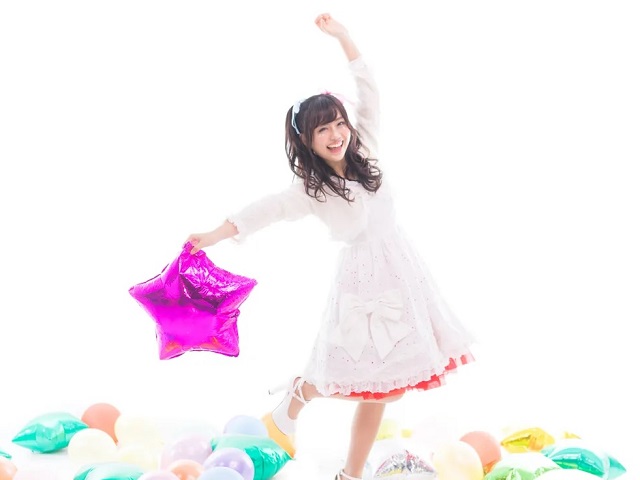




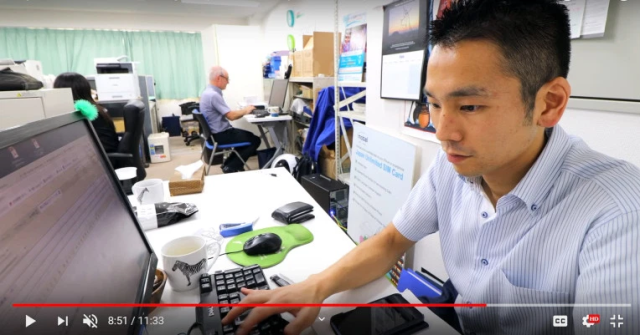
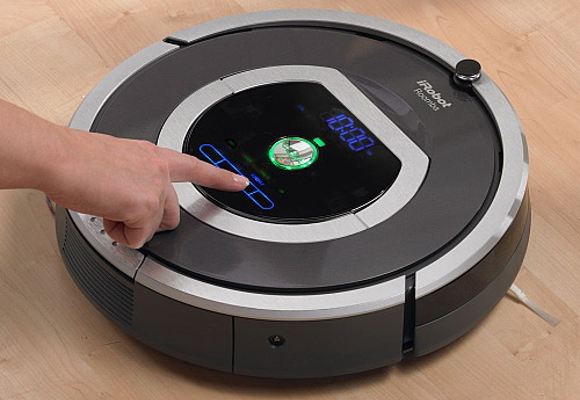
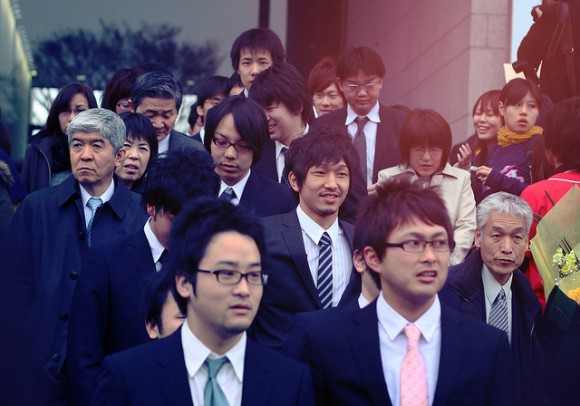


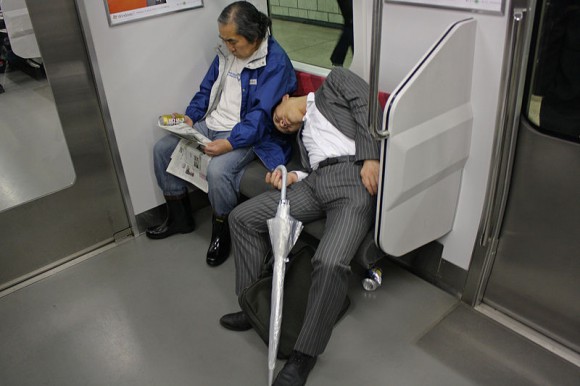
 Family Mart ups its convenience store food game with special burger from beef bowl chain Matsuya
Family Mart ups its convenience store food game with special burger from beef bowl chain Matsuya Mister Donut and Godiva continue their sweet sweets relationship with new treats on sale now in Japan
Mister Donut and Godiva continue their sweet sweets relationship with new treats on sale now in Japan Japanese department store rooftop is a secret oasis where you can escape the crowds in Tokyo
Japanese department store rooftop is a secret oasis where you can escape the crowds in Tokyo Drift ice in Japan is a disappearing winter miracle you need to see now
Drift ice in Japan is a disappearing winter miracle you need to see now Japan Extreme Budget Travel! A trip from Tokyo to Izumo for just 30,000 yen [Part 2]
Japan Extreme Budget Travel! A trip from Tokyo to Izumo for just 30,000 yen [Part 2] Starbucks Japan releases first-ever Hinamatsuri Girls’ Day Frappuccino
Starbucks Japan releases first-ever Hinamatsuri Girls’ Day Frappuccino Better know a train nerd: 36 different classifications for Japan’s “densha otaku”
Better know a train nerd: 36 different classifications for Japan’s “densha otaku” Tokyo Station staff share their top 10 favorite ekiben
Tokyo Station staff share their top 10 favorite ekiben New zombie ship sets sail in Japan, includes Shinkansen tickets and all-you-can-eat sushi
New zombie ship sets sail in Japan, includes Shinkansen tickets and all-you-can-eat sushi Our human reporter and her pet try Hokkaido’s “human-grade pet food” together【Taste test】
Our human reporter and her pet try Hokkaido’s “human-grade pet food” together【Taste test】 Highest Starbucks in Japan set to open this spring in the Tokyo sky
Highest Starbucks in Japan set to open this spring in the Tokyo sky Tokyo Skytree turns pink for the cherry blossom season
Tokyo Skytree turns pink for the cherry blossom season Japanese restaurant chain serves Dragon Ball donuts and Senzu Beans this spring
Japanese restaurant chain serves Dragon Ball donuts and Senzu Beans this spring Yakuzen ramen restaurant in Tokyo is very different to a yakuza ramen restaurant
Yakuzen ramen restaurant in Tokyo is very different to a yakuza ramen restaurant Japan Extreme Budget Travel! A trip from Tokyo to Izumo for just 30,000 yen [Part 1]
Japan Extreme Budget Travel! A trip from Tokyo to Izumo for just 30,000 yen [Part 1] Japan has only one airport named after a samurai, so let’s check out Kochi Ryoma【Photos】
Japan has only one airport named after a samurai, so let’s check out Kochi Ryoma【Photos】 Japanese drugstore sells onigiri at pre-stupid era prices, but how do they compare to 7-Eleven?
Japanese drugstore sells onigiri at pre-stupid era prices, but how do they compare to 7-Eleven? Burning through cash just to throw things away tops list of headaches when moving house in Japan
Burning through cash just to throw things away tops list of headaches when moving house in Japan Starbucks Japan releases new sakura goods and drinkware for cherry blossom season 2026
Starbucks Japan releases new sakura goods and drinkware for cherry blossom season 2026 Japan’s newest Shinkansen has no seats…or passengers [Video]
Japan’s newest Shinkansen has no seats…or passengers [Video] Foreigners accounting for over 80 percent of off-course skiers needing rescue in Japan’s Hokkaido
Foreigners accounting for over 80 percent of off-course skiers needing rescue in Japan’s Hokkaido Super-salty pizza sends six kids to the hospital in Japan, linguistics blamed
Super-salty pizza sends six kids to the hospital in Japan, linguistics blamed Starbucks Japan unveils new sakura Frappuccino for cherry blossom season 2026
Starbucks Japan unveils new sakura Frappuccino for cherry blossom season 2026 Foreign tourists in Japan will get free Shinkansen tickets to promote regional tourism
Foreign tourists in Japan will get free Shinkansen tickets to promote regional tourism The 10 most annoying things foreign tourists do on Japanese trains, according to locals
The 10 most annoying things foreign tourists do on Japanese trains, according to locals Take a trip to Japan’s Dododo Land, the most irritating place on Earth
Take a trip to Japan’s Dododo Land, the most irritating place on Earth Naruto and Converse team up for new line of shinobi sneakers[Photos]
Naruto and Converse team up for new line of shinobi sneakers[Photos] Is China’s don’t-go-to-Japan warning affecting the lines at a popular Tokyo gyukatsu restaurant?
Is China’s don’t-go-to-Japan warning affecting the lines at a popular Tokyo gyukatsu restaurant? Survey asks foreign tourists what bothered them in Japan, more than half gave same answer
Survey asks foreign tourists what bothered them in Japan, more than half gave same answer Japan’s human washing machines will go on sale to general public, demos to be held in Tokyo
Japan’s human washing machines will go on sale to general public, demos to be held in Tokyo Starbucks Japan releases new drinkware and goods for Valentine’s Day
Starbucks Japan releases new drinkware and goods for Valentine’s Day We deeply regret going into this tunnel on our walk in the mountains of Japan
We deeply regret going into this tunnel on our walk in the mountains of Japan Studio Ghibli releases Kodama forest spirits from Princess Mononoke to light up your home
Studio Ghibli releases Kodama forest spirits from Princess Mononoke to light up your home Major Japanese hotel chain says reservations via overseas booking sites may not be valid
Major Japanese hotel chain says reservations via overseas booking sites may not be valid Put sesame oil in your coffee? Japanese maker says it’s the best way to start your day【Taste test】
Put sesame oil in your coffee? Japanese maker says it’s the best way to start your day【Taste test】 No more using real katana for tourism activities, Japan’s National Police Agency says
No more using real katana for tourism activities, Japan’s National Police Agency says Starbucks Japan releases first-ever Hinamatsuri Girls’ Day Frappuccino
Starbucks Japan releases first-ever Hinamatsuri Girls’ Day Frappuccino Better know a train nerd: 36 different classifications for Japan’s “densha otaku”
Better know a train nerd: 36 different classifications for Japan’s “densha otaku” Tokyo Station staff share their top 10 favorite ekiben
Tokyo Station staff share their top 10 favorite ekiben New zombie ship sets sail in Japan, includes Shinkansen tickets and all-you-can-eat sushi
New zombie ship sets sail in Japan, includes Shinkansen tickets and all-you-can-eat sushi Our human reporter and her pet try Hokkaido’s “human-grade pet food” together【Taste test】
Our human reporter and her pet try Hokkaido’s “human-grade pet food” together【Taste test】 Internet survey sheds light on how Japanese women deal with the hair ‘down there’
Internet survey sheds light on how Japanese women deal with the hair ‘down there’ Japan’s Naruto theme park now offering real-world version of Minato’s kunai ninja weapon
Japan’s Naruto theme park now offering real-world version of Minato’s kunai ninja weapon This is Japan’s, and the world’s, first capsule hotel, and you can still stay there
This is Japan’s, and the world’s, first capsule hotel, and you can still stay there You want the whole crab? Japan’s Dom Dom will give it to you, and curry too, in Marugoto Kani Burger
You want the whole crab? Japan’s Dom Dom will give it to you, and curry too, in Marugoto Kani Burger The top 10 Studio Ghibli anime homes that fans would most like to live in
The top 10 Studio Ghibli anime homes that fans would most like to live in If you have an apartment in Japan, your “fire disaster insurance” may also be toilet insurance
If you have an apartment in Japan, your “fire disaster insurance” may also be toilet insurance The fish in rural Fukui that rivals Japan’s most auspicious sea bream
The fish in rural Fukui that rivals Japan’s most auspicious sea bream